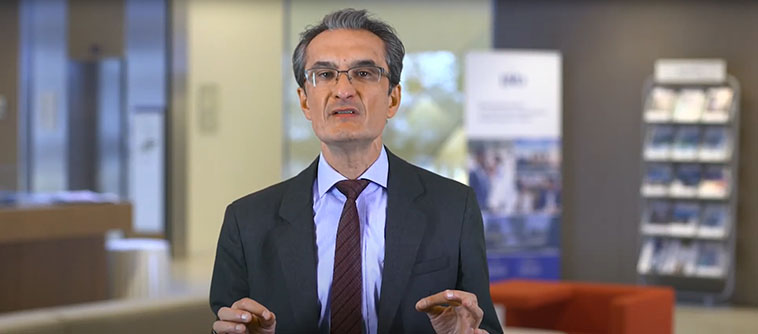The average person interacts with only one financial institution.
Many of us, however, hold a bank account with one institution, and a mortgage with another.
But then what happens if we want to start a relationship with more banks still, sign up for an online payment system, or connect with an online stock trader? We need to go through the arduous process of setting up a new account, providing yet another round of our private data such as our income, address and family situation.
With an ever-wider range of digital platforms available to us, this situation is only going to multiply. Technology is generating an abundance of choice in banking, but also investing — and beyond. Take roboadvisors, the automated, algorithm-driven financial planning services with little to no human supervision that have become extremely popular over the last few years.
Up until now, banks were protecting bank account data from third parties on two grounds: the privacy concerns of their customers and the protection of their own business. Suddenly, open banking is changing this protective approach and offering a revolutionary solution to the problems it was previously feared that data sharing in these contexts would imply.
How does it work?
With open banking, customers operate a platform where, having established a single banking relationship, they can carry out a full array of transactions with several other institutions.
A customer’s original bank account with UBS, for instance, will become a trading account with Swissquote, say. It will also operate as a digital wallet through Revolut, linked to Amazon.com, for instance, enabling direct payments and eliminating the hassle of entering financial information time and time again.
Technically, what makes open banking possible is Application Programming Interfaces (APIs), which allow the transfer of information across different institutions, so they can connect with each other in a secure way. A good analogy is phone chargers; imagine the convenience of a universal phone charger that works with iPhone, Samsung and Huawei.
From the customer perspective, so long as you can control who accesses your data, you are much better off if your bank can open up your accounts and data to third parties. The three boxes of efficiency, security and compliance are met.
From the regulator’s perspective, open banking improves the financial supervision of institutions and individuals.
Innovators and Fintech companies will benefit by being able to create better solutions for the customer with access to their data. In the best case scenario, they would complement the services that the bank provides with new ones that a traditional bank never could offer.
Fintechs’ great challenge is attracting and capturing clients. By partnering with established institutions, they can easily scale up their business thanks to open banking.
With open banking, competition will increase, which is good for customers. Contrary to fears, customers will be in full control of their data. It will not be online, but shared and residing on institutions’ servers. The idea of a digital platform exploiting your personal information for their own benefit will become a thing of the past.
Professor of Finance Arturo Bris is the Director of the Digital Finance program at IMD.



